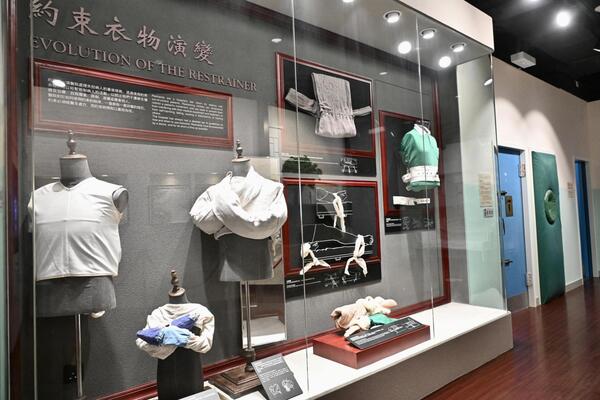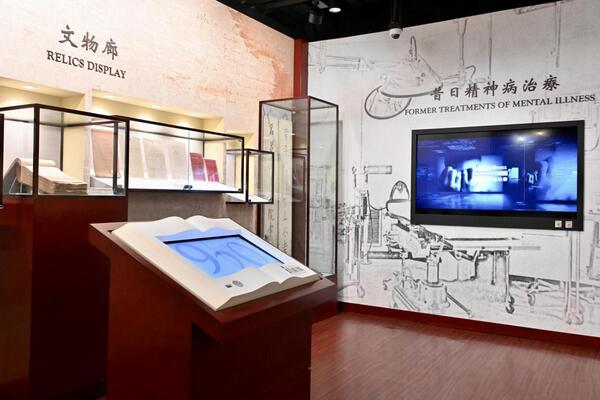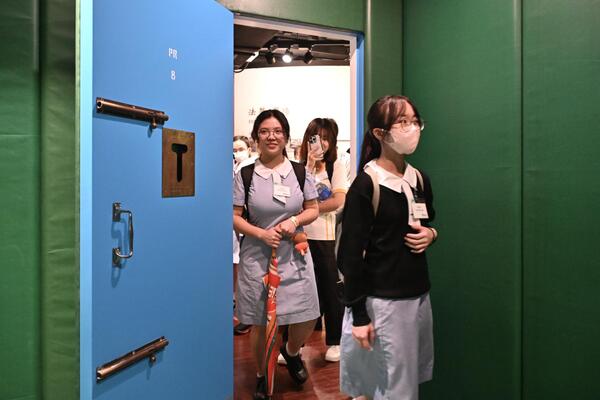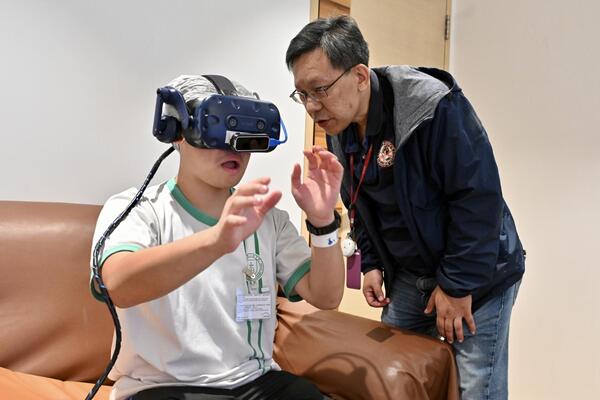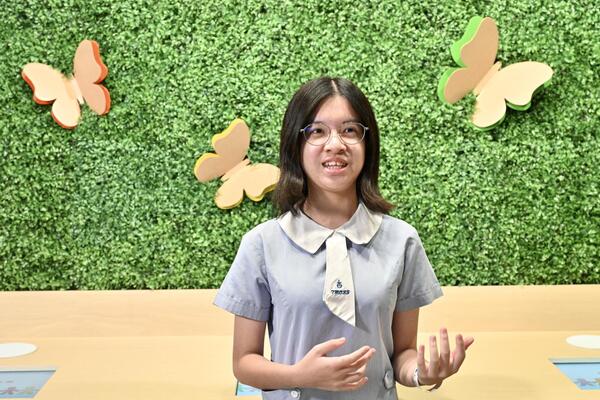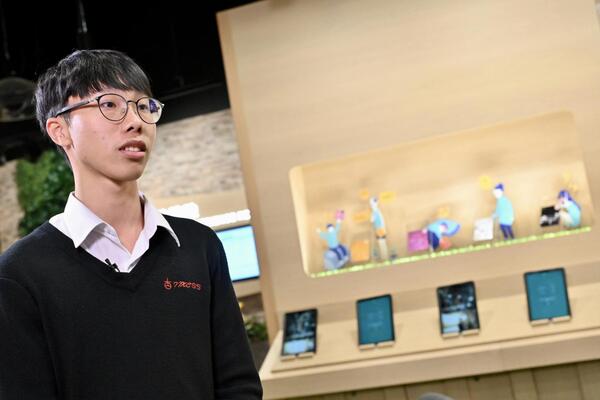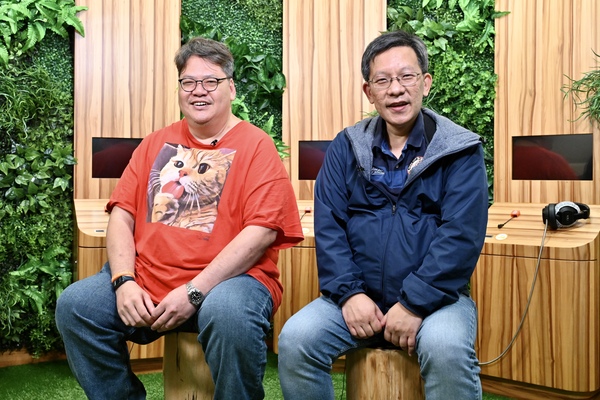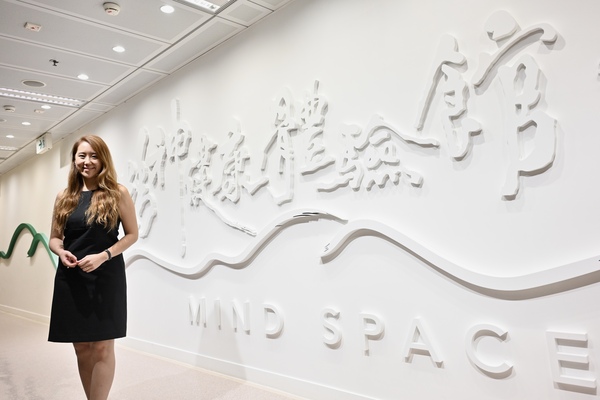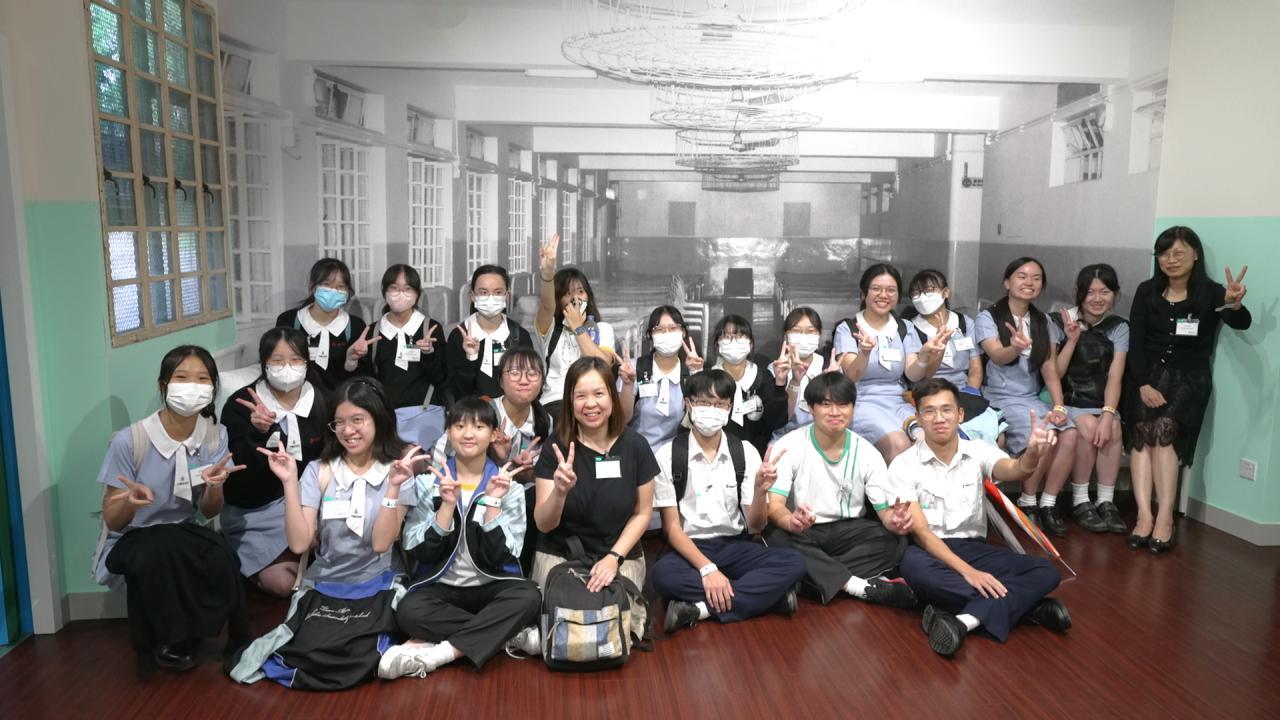Hands-on approach to mental illness
With the aim of combatting the fear and misconceptions surrounding mental illness, Castle Peak Hospital’s Mind Space museum enables visitors to experience hallucinations, similar to the sensory experiences mentally ill patients encounter, by way of rooms that utilise virtual reality (VR) technology.
A group of secondary students recently embarked on a journey through Mind Space after registering and receiving patient wristbands. This unique mental health experience museum provided them with a comprehensive understanding of the development of psychiatric services in Hong Kong.
Displays in the museum showcase intriguing relics, including the evolution of restraints and handwritten patient records. Additionally, the students were given the opportunity to explore a mock protection room designed to provide a calming environment for patients.
Furthermore, students could learn about the scientific aspects behind the causes of mental illness at the Brain Tour zone. One of the highlights is the Symptom Experience Rooms where VR technology simulates the visual, auditory, and tactile hallucinations that those with mental illness can experience.
Tremendous influence
Ho Hin-man, a Secondary 6 student, admitted to underestimating the profound impact of mental illness on patients' lives. She said: “Their condition significantly impairs their visual and auditory senses, leading to heightened levels of mental tension, extreme nervousness, and intensified worrying.”
Apart from acknowledging that he had a limited understanding of mental illness before taking the Mind Space tour, Chan Ngai-sum, another Secondary 6 student, pointed out that he gained valuable insights from the Symptom Experience Rooms.
“I had the chance to personally undergo the sensations that individuals with mental illness encounter. It was an uncanny experience - something intangible yet vividly visible.”
Personal experience
Mind Space also employs ex-mentally ill individuals as Peer Support Workers who share their own mental health experiences with visitors. One such Peer Support Worker is Jecko who was diagnosed with psychosis approximately 20 years ago.
Jecko recounted experiencing auditory hallucinations during the initial onset of his mental illness, including hearing the crinkling sounds of plastic bags in his apartment or loud noise of pile driving. He also mentioned visual hallucinations of a head popping up from a dehumidifier and tactile hallucinations of insects crawling on his body.
Eric, another Peer Support Worker, shared a similar experience. He developed insomnia and had auditory hallucinations subsequently. He described hearing a voice ordering him to board a bus to a destination he did not wish to go to. The experience resulted in him being discovered in the suburb of Tai Po Lam Tsuen.
Both Jecko and Eric emphasised the importance of seeking medical assistance and following instructions on prescribed medications, as doing so significantly alleviated the severity of their symptoms.
Adequate support
While they highlighted that support from family and friends is crucial, they cautioned that such support should be offered in an appropriate manner.
Jecko shared an example involving his sister who genuinely cared about him but expressed it through an overwhelming barrage of questions like, “Have you finished your meal?” “What did you eat?” “How many bowls of rice did you have?” Such detailed interrogation left Jecko feeling uncomfortable, as though he was being subjected to intensive questioning.
What is more, he advised relatives and friends not to dismiss patients' symptoms as mere figments of their imagination because such dismissive attitudes can be disheartening and discourage patients from sharing their experiences.
Eric made it clear that his role as a Peer Support Worker has given him the opportunity to serve as a role model and demonstrate to the public that mental illness is not a dead end but rather a path to recovery.
He expressed that as patients’ relatives witness first-hand the possibilities of recovery, their fears and concerns about their loved ones' conditions are likely to diminish.
“They will gain confidence that their relatives can also achieve recovery, just as we have.”
Targetting teens
Castle Peak Hospital plans to invite more schools to visit Mind Space with the aim of enhancing young people's understanding of mental illness and mental health.
Dr Jane So, Associate Consultant at Castle Peak Hospital, stated that the museum was designed with the youth in mind.
She explained that the goal behind the museum is to employ intervention strategies during this crucial phase of their lives, when their values and perspectives on mental health are being shaped, with the objective of correcting any biases they may have and providing education on mental health.
Those interested in touring the museum can book online.
